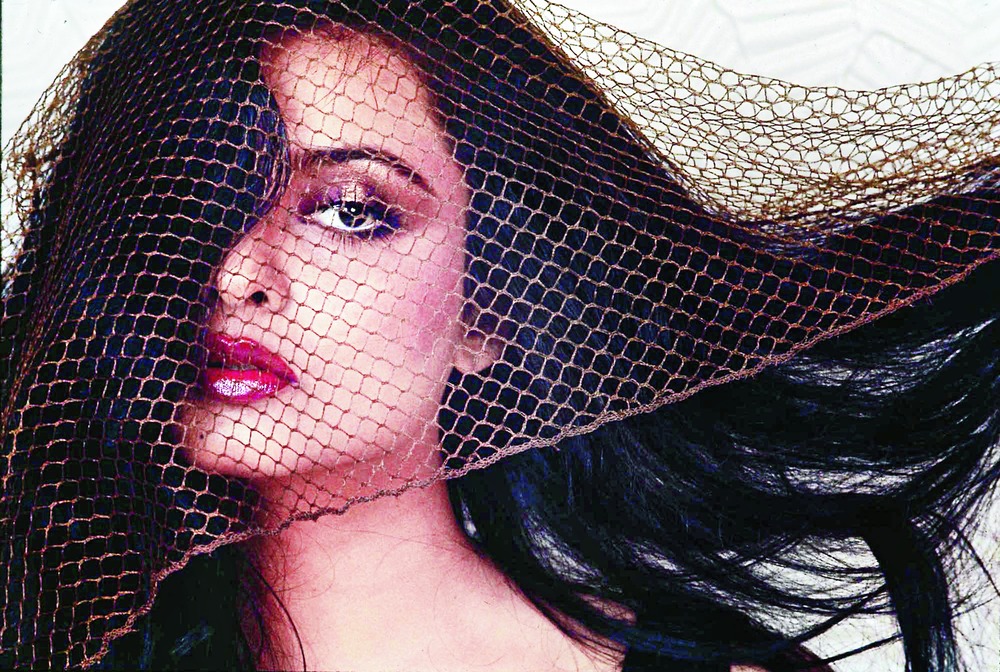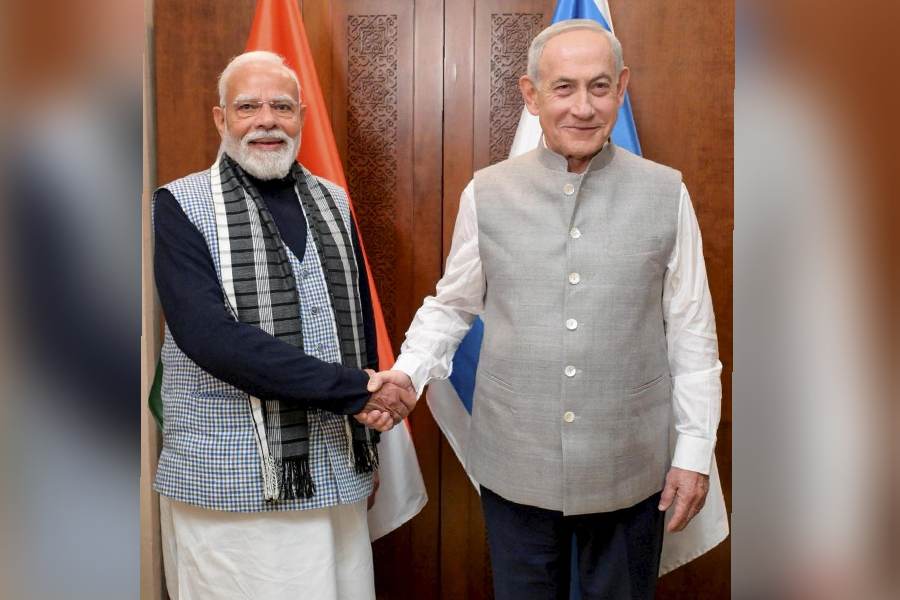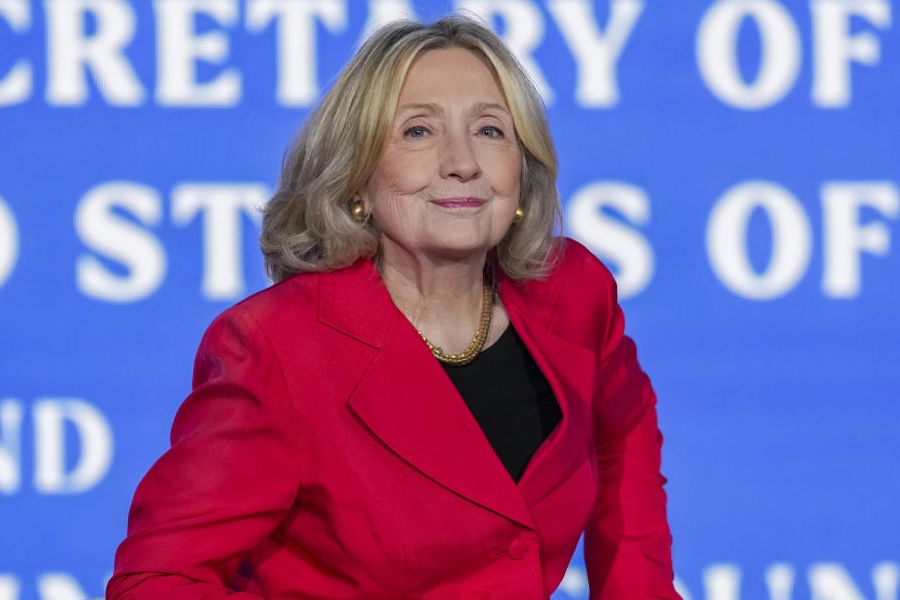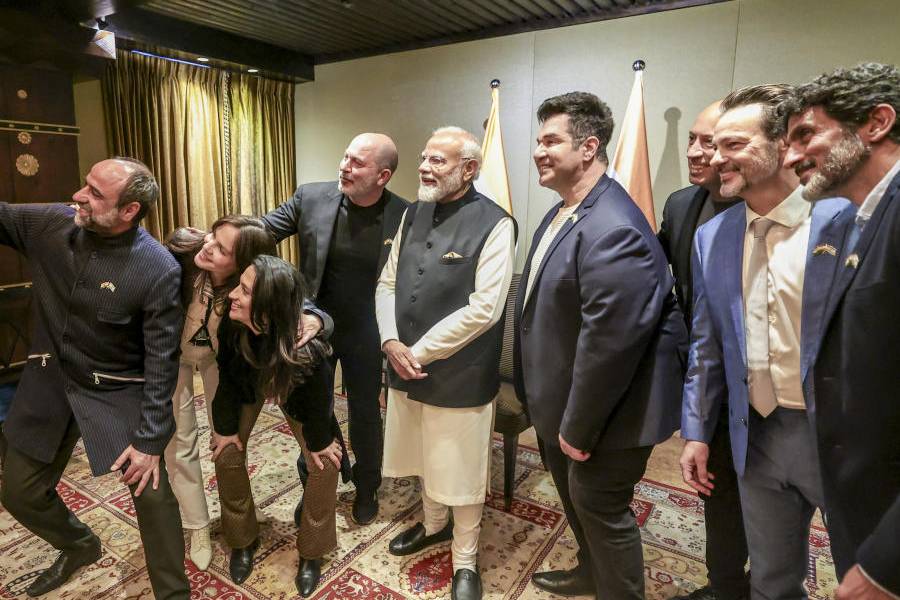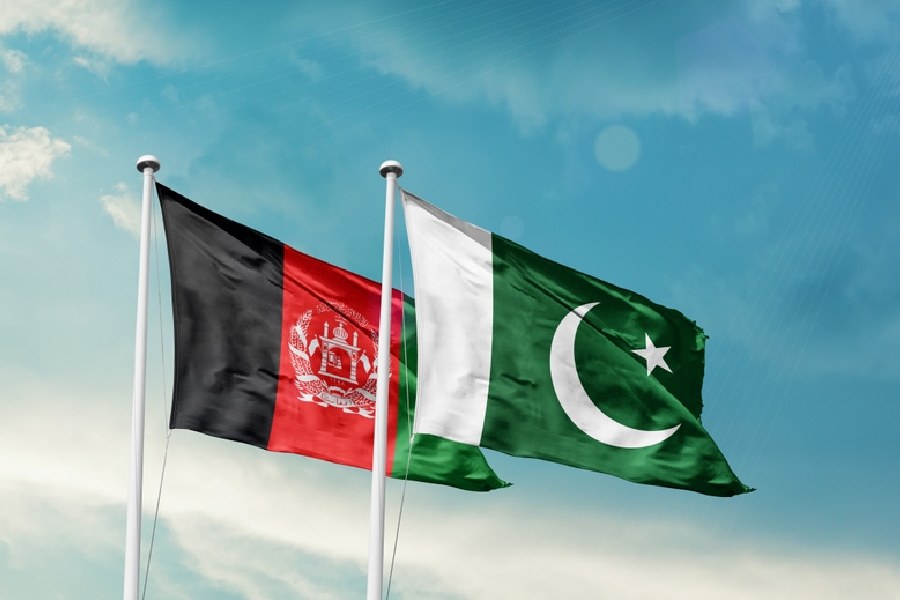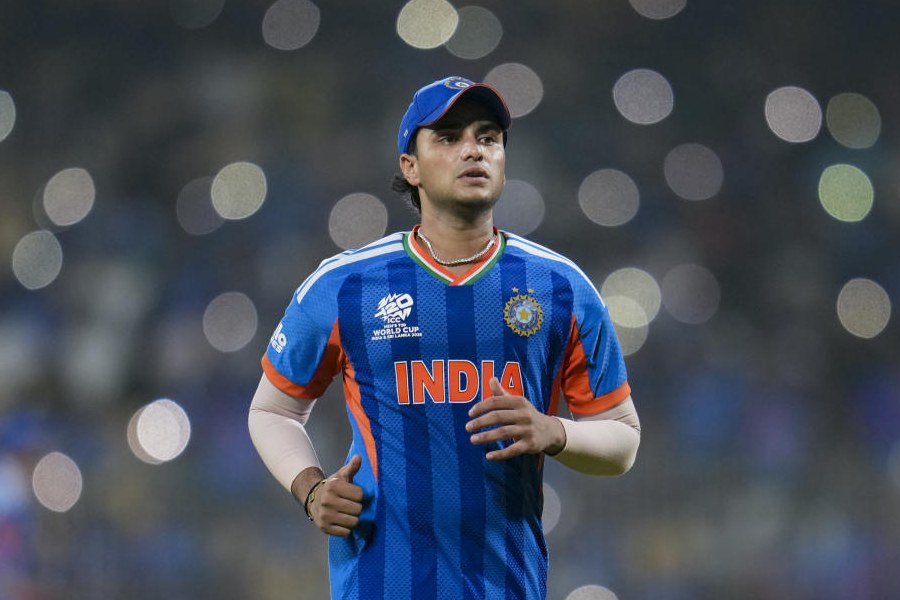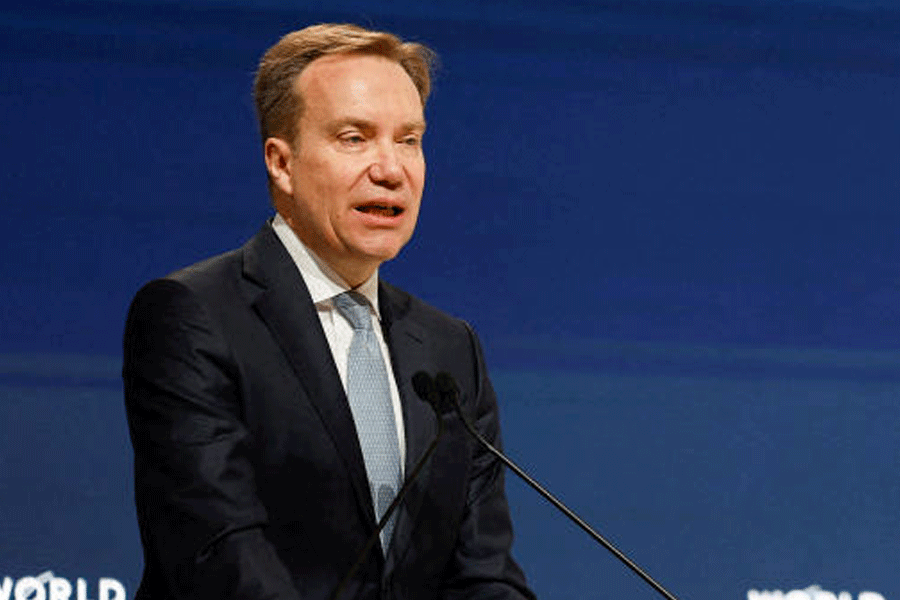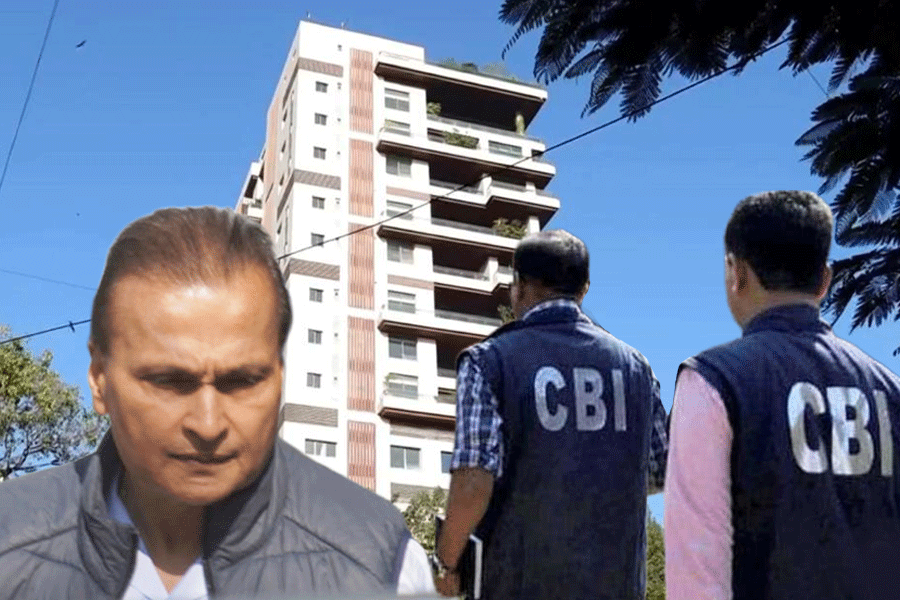Child abuse. Body shaming. A stream of broken relationships. An enduring affair, the feast of all gossip. The stories about Rekha, loved, loathed, defiant and a diva, should have been all too many. But author Yasser Usman found that few in the Hindi film industry were ready to speak about her. They would laugh derisively, make snide comments or just clam up when he contacted them for his book Rekha: The Untold Story. The code of silence, Usman tells Bishakha De Sarkar, had something to do with the Rekha aura, and Amitabh Bachchan. But there were other factors, too. Excerpts from a freewheeling interview:

Q: What made you write a book on Rekha?
A: I wrote my first book on Rajesh Khanna. I had done a television documentary on the last 10 or 15 years of his life. That book was basically about his loneliness. And the thread continues in this book.
Whenever you talk about Rekha, people only think of Amitabh Bachchan. At any film event, you will have the camera cut to him, and then to Rekha. But Rekha is not all about him. She has worked in more than 150 films. She has been a lead actress for almost 20 years, she is a National Award winner, given great performances.
Q: How difficult was it to gather information about her?
A: This was one girl who was brutally abused and body shamed. She came to an industry dominated by north India as a 14-year-old from Madras who knew no Hindi. I wanted to document this, but the difficulty I faced from the beginning was that people were not ready to talk about it.
I went to a co-star, who belongs to a very illustrious Bollywood family. I said I was writing about Rekha. He laughed - "Ha ha ha, what are you writing now, what is there to write?" There was a director who invited me to his house, said we'd talk there, and promised to give me pictures. I went there early morning, he gave me tea, and talked about everything but Rekha. He said he couldn't remember anything about her. I said, you have done all these films with her, tell me your stories. "You forget all those stories," he said. "She was such a bold woman, now she is changed." But why? "People have played with her. No I don't want to talk about it." Any reason? "No, no reason. I don't want to talk about it."
Q: You write about sexist comments...
A: An actor who plays negative roles said to me, "Are you going to write about her sex life?" That was the first question he asked. A very senior screenwriter said to me, "Why are you writing about her? It will spoil your name." He was bitter about her. Abusive words such as kutti kamini were used. It seemed he had had a bitter experience. Tell me about it, I said. "I don't want to talk about that woman. And you shouldn't write about that woman because I like you."
I wanted to ask them about Rekha, the actress. But she didn't exist for these people. Her 33-inch waist came up. They said she'd done surgery. Someone said, "Arrey, she is now as fair as you are." A 78-year-old man said everyone slept with her, even a spot boy.
Then I met people like Gulzar saab, Shyam Benegal, Muzaffar Ali and some others who were all so good.
Q: Is this code of silence related to her supposed relationship with Amitabh Bachchan?
A: I realised that this was because of Mr Bachchan. But no one said that they were not talking about her because of him. Then I realised that it was also because of this inherent bias against successful women. Here is a woman whom you humiliated, whom you abused and now she has become what she has become - a star. So acceptance is very difficult, and the blame game begins - "You know, naa, who all she slept with, where she went and danced. And you know, naa, her connection with Bachchan saab." Each and every one tried to demote and humiliate her. "What are you going to write, it's all about affairs." And when I asked, "Isn't there anything else?", they said "No, there isn't".
Q: Did you get in touch with Rekha?
A: I tried calling her. They still have an answering machine. I kept recording messages. I said: "I genuinely want to write about you, about your own story." But there was no response. Then Gulzar saab called Rekha. Three or four days later, I got a call from Farzana [her secretary]. She was very polite. We spoke for a long time and she asked me many questions about what I was going to write. She said she'd call back, but the call never came.
I wanted Rekha's voice in the book. I remembered her interviews to film magazines that my father used to read. I went to the Pune National Archives. I did most of my research there. Some magazines are from my father's personal collection. Like Super, which Namita Gokhale used to edit. So Rekha's voice is there - right from the time she was 14 to the superstar who turned into a diva after her husband's suicide.

Q: What changed Rekha?
A: She was the daughter of Gemini Ganesan, who never accepted her. And as they say, before any story, there is the mother's story. She had seen her mother not being accepted by her father. She had a fatherless childhood and craved a relationship where she would be accepted. It never happened. She was rejected by Vinod Mehra's mother, Kiran Kumar's father, then by Jeetendra, who had a girlfriend. Amitabh Bachchan has always denied that there was anything between them.
She met Mukesh Aggarwal through Bina Ramani. Mukesh proposed, and they got married the same day, at 10 that night. They went for their honeymoon the next day, and realised that it had been a hurried job. Mukesh told her, "I also have an AB in my life" [about his relationship with his therapist, Akash Bajaj] - which was a shocking and crude thing to say. She realised that the relation would not work and that he was clinically depressed. But she had told Neeraj Kumar, ex-commissioner of Delhi Police, that that was the kind of life she had always wanted. "I am ready to leave my entire stardom," she said. She told magazines, "Now I am Rekha Aggarwal."
Rekha was in New York for a show when he hanged himself. And every magazine held her responsible. They called her a dayan (witch), said she had eaten up Mukesh. From Subhash Ghai to Anupam Kher, everybody was abusing her. I think all this became too much for her.
Q: Do you think a part of the campaign against Rekha had to do with the fact that she thumbed her nose at the industry?
A: In the early 70s she was giving statements such as, "You can't really come close to a man without a physical relationship, it's all bull to say that a single woman should have sex only on her suhaag raat." All this totally rattled Bollywood.
At the age of 14, she had been pulled out of school, serially abused by producers, kissed on the screen. Naveen Nischol, a newcomer [her co-star in her Hindi debut film Sawan Bhadon] called her moti, kali-kaluti - fat, black and ugly. Raj Kumar told the director, "You are from Africa. That's why you like black women."
It was very difficult for Bollywood to accept that someone from her background had become what she'd become.
Q: Did you get in touch with Bachchan?
A: I didn't try. In an interview with Simi [Garewal], he'd said he had never met "the concerned lady" except when they bumped into each other at parties, etc. [Politician] Amar Singh narrated this story about how they went to Shabana Azmi's birthday party. Bachchan asked his driver to go and have a meal. But when they entered Azmi's house, they saw Rekha there, and he just ran away. His driver was not there, so they hired a taxi. The hints are all there, but since Bachchan has always denied it, that version is also there. I wanted to make this journalistically balanced.
Q: Tell us something more about the change in Rekha.
A: Somewhere she realised that every scandal is publicity, and every tragedy an opportunity to reinvent yourself. After Mukesh's death, she was no more the same Rekha. She reinvented herself. After the Coolie incident [when Bachchan was badly injured while shooting] and she was not allowed to see him in hospital, she started doing art-house films such as Umrao Jaan and Ijaazat. She transformed herself in terms of language, too.
Q: There's also Rekha's enduring charisma...
A: I'd asked Muzaffar Ali why he chose Rekha for Umrao Jaan. "I saw Rekha's picture, a close-up, and I saw her eyes. Uskey aankhon mey girkey uthney wali kafiyat thhi (she is someone who has been hurt a lot, but stands up stronger). It wasn't easy working with her, she made my life hell. But it was all worth it."
Q: Did you get the feeling that people were also not talking to you because of Rekha's own clout?
A: Ramesh Talwar, who directed her in Basera, is a sweet man. But he said to me, "Arrey ab kya bataye (what should I say now)? She will be upset if I talk about her." Her hairdresser from Sawan Bhadon said, "I have a lot of stories. Come over in the evening." She promised me pictures, too. But then she refused to meet me. She asked me to get permission from Rekha.
For a picture for the book cover, I spoke to many photographers. Each one of them said, we have to take permission from Rekha. So there was something.
Q: Do you plan to meet Rekha and give her a copy of the book?
A: I will send her a copy. I hope she likes it.

